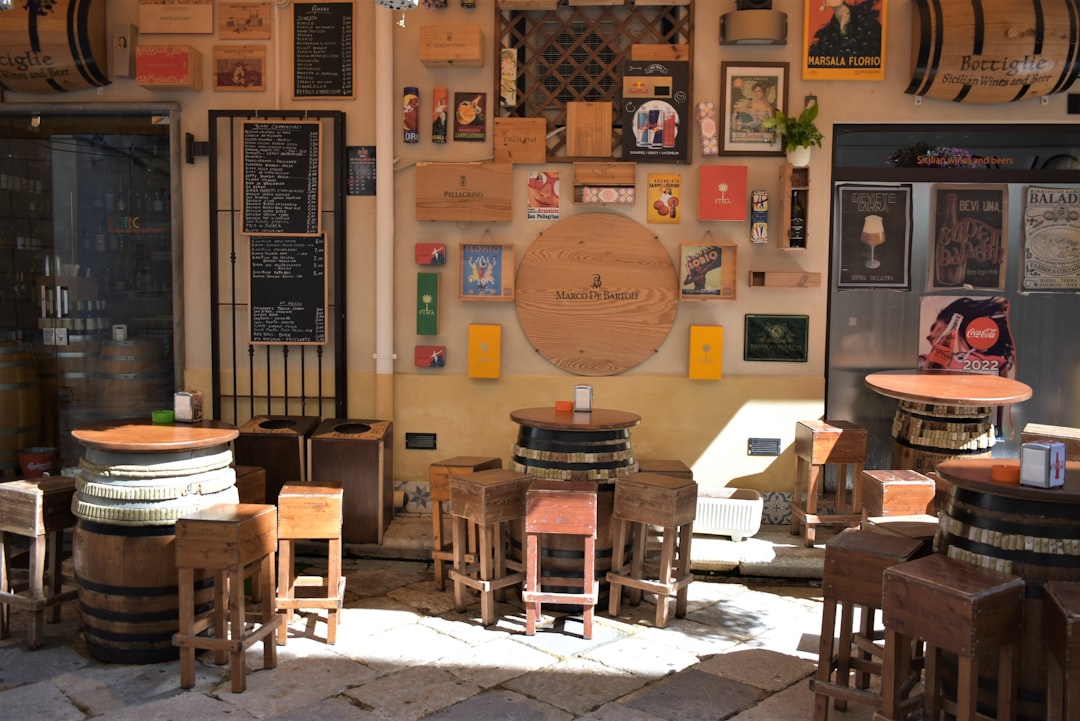In the saturated world of coffee culture, a well-crafted logo can act as the silent ambassador of your brand—conveying flavor, quality, heritage, and passion before the first sip is taken. Whether you run an independent coffee shop or manage a multi-location café brand, your logo must not only fit your coffee philosophy but also connect emotionally with your target audience. With clever design, it can even serve as a memory trigger—a comforting beacon of aroma and taste. Think about Starbucks’ used siren or the iconic red lettering of Tim Hortons; such imagery becomes inseparable from the product experience.
TL;DR:
If you’re creating or refreshing a coffee brand logo, prioritize emotional resonance, cultural authenticity, and visual simplicity. In this article, we explore 12 cafés and coffee brands with logo concepts that stand out for various reasons—clever use of typography, color palettes that evoke warmth, and icons that hint at origin or flavor. You’ll also find inspiration in design trends such as minimalism, vintage adornments, and hand-drawn elements. These examples serve as aesthetic guidelines to help you craft a logo that sells not only coffee—but the very experience of drinking it.
1. Stagg Brew Co.
Simplistic Masculine Identity
Stagg Brew Co. boasts a sharply minimalist logo featuring a bold forest-green emblem of a stag with stylized antlers shaped like steaming coffee wisps. Designed to mirror strength and wilderness, it appeals to an artisanal, outdoorsy clientele. The typography is sans-serif and stern, grounding the image in modern masculinity. The steam-shaped antlers double as a subtle coffee reference—clever and iconic.
2. Velvet Roast
Luxe and Feminine
This upscale coffee boutique uses a refined cursive wordmark and a pastel mauve color scheme. The swash lines of the ‘V’ and ‘R’ mimic the curves of pouring cream, immediately invoking indulgence. The logo is sleek enough for packaging labels, VIP loyalty cards, and social media assets.

3. Grit Coffeehouse
Urban Minimalism
Grit Coffeehouse uses gritty, concrete-gray tones with a reverse-block font reminiscent of newspaper print. The wordmark is compact and rectangular, designed to be adaptable across signage, mobile apps, and loyalty cards. There’s no cup or bean symbol—intentionally, the “grit” lies in the name and typographic texture.
4. Nomad Beans
Culturally Rooted and Symbolic
Perfect for a brand that sources beans from across the globe, Nomad Beans utilizes a stylized compass rose encircling a coffee bean. Metallic bronze against matte black makes the logo ideal for both packaging and merchandise. Each arm of the compass subtly incorporates tribal patterns from coffee-originating regions like Ethiopia and Colombia.
5. Farm + Filter
Rustic Handcrafted Appeal
This brand’s logo merges hand-drawn illustrations with serif type. A sketch of a Chemex pour-over contraption rests beneath the arched, typewriter-style brand name. The imagery whispers of raw ingredients and careful preparation—ideal for telling sustainability or fair trade stories on your packaging.
6. Obsidian Brew
Dark and Mysterious
Diving deep into the noir aesthetic, Obsidian Brew’s logo is a black-on-black gloss print with a barely visible raven icon. The gothic typeface is deliberate but legible. This branding appeals to late-night audiences, indie music lovers, and dark academia enthusiasts. A touch of matte gives the printed material a velvety feel, invoking richness before taste.
7. Sunday Sip
Soft Nostalgia
Sunday Sip draws inspiration from mid-century cafés, including bright yellows, retro rounded fonts, and a cheerful sun rising from a coffee cup. Sequelize retro vibes with a human warmth that appeals to families, weekend brunchers, and those craving slower moments.

8. Black Finch Espresso
Nature-Inspired Precision
This indie micro-roaster uses a geometric finch icon perched on a stylized espresso shot cup. The black-and-white palette ensures flexibility across web, print, and packaging designs. Featuring ultra-clean lines and a Swiss design layout, Black Finch appeals to minimalists and design purists alike.
9. Rise Alpine Roast
Adventure Branding
Catering to mountain hikers and backcountry travelers, Rise uses visual elements like a stylized sunrise, contour maps, and pine trees in a compact emblem. Earthy greens blend with cinnamon colors to project scenery and warmth. The wordmark includes angular slopes in its letterforms evoking peaks and ascents—reinforcing the idea that this coffee powers your climbs.
10. Casa del Café
Heritage and Tradition
Inspired by Latinx architecture, Casa del Café’s logo includes ornate tile work around the border and an adobe-colored palette. The font is calligraphic, giving weight to its regional authenticity. Versatile in both monochrome and full-color formats, the logo conjures comforting tradition with a hint of cultural elegance.
11. Third Rail Roasters
Urban Grit Meets Speed
The electrifying element of the third rail—an urban subway reference—is illustrated as a coil of lightning that forms a stylized ‘T’ and ‘R’. Complemented by copyright-style serif type, this logo is perfect for fast-paced city cafés. Its edge and energy vibe appeals to young professionals and digital nomads.
12. Driftwood Grinds
Laid-back by the Shore
This coastal coffee spot uses light aquamarines and sand tones with a sketched driftwood texture behind the name. A subtle wave curls over a minimalist coffee cup. Driftwood Grinds’ branding tells a story of morning surfs and late afternoon lattés, capturing the relaxed mood of beachside cafés.
Conclusion: What Makes a Logo Aroma-Sell?
In sum, coffee logos that “aroma-sell” embody a strategic blend of visual identity, cultural storytelling, and sensory cues. They do more than appeal—they invite. Whether you’re aiming for refined luxury, gritty urban, or homegrown warmth, the logo sets the tone long before your customer takes their first sip.
Choose shapes that resonate with your origin story, fonts that communicate your attitude, and colors that convey freshness or tradition. Flexibility is key; your logo needs to shine equally well on cups, signage, and browser tabs. Above all, it must pass the test of time. When in doubt, keep it simple and let the aroma do the rest.